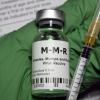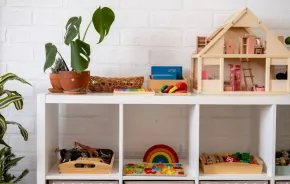
“Because kids.”
“Shhh, there’s wine in here.”
“This mama runs on coffee, wine and Amazon Prime.”
“It takes a village... and lots of wine.”
Every mom has seen — and maybe even laughed at — phrases like these emblazoned on wine glasses, coffee mugs, T-shirts and all over Instagram “mommy blogger” feeds. And while the slogans may become tired, the message isn’t lost — and it’s not actually very cute or funny.
I’m all for enjoying a glass of wine or two, or having an occasional rosé-fueled Moms Night Out if that’s your thing, but the numbers paint a more grim picture than that.
In a 2015 Centers for Disease Control and Prevention survey of women ages 18- to 44-years-old, 18 percent of surveyed women reported binge drinking (four or more drinks in a single occasion) in the past 30 days. Among non-pregnant women, 53.6 percent of surveyed women had drank alcohol in the past 30 days.
More recently, in 2017, the Wine Market Council reported 57 percent of high-frequency wine drinkers (those who drink more often than once a week) are women.
Yes, being a mom is hard. Yes, the moms absolutely deserve a break. But if we get really honest, the wine mom trope perpetuates the normalization of wine consumption (and over-consumption) as a healthy coping mechanism for the everyday stresses of parenting. That’s damaging to us, our children and our friends.
The negative effects alcohol has on our health are no surprise to most of us, which speaks to how deeply these attitudes run in our culture. According to the World Health Organization, alcohol is among the top five risk factors for disease, disability and death across the world and is a causal factor in more than 200 disease and injury conditions.
But isn’t one glass of red wine a day good for you?
Sorry, Mama. That myth has been largely debunked.
While drinking two or more glasses of wine might provide a temporary buffer for the hard parts of motherhood like dealing with teething mania or a moody teenager, it is twice as stressful with a hangover. And when your mom game is off, your kids suffer.
Drinking in excess can wreak havoc on our mental health, too. For new and postpartum moms and moms who suffer from depression and anxiety, drinking can exacerbate symptoms, prevent women from seeking professional help when they need it and make it harder to diagnose when they do.
For women who are sober or women who struggle with addiction, wine-centric messages not only lack sensitivity and inclusiveness, they can be dangerous triggers.
So, can we really call this self-care? And is our allegiance to wine culture more important than supporting other moms in doing their best? Considering the ultimate goals, there are far more effective, less harmful self-care habits to adopt. To name a few: going for a run or walk, journaling, meditating or taking a bath (swap the wine for soothing essential oils).
Self-care means finding real solutions to alleviate our stress and asking for help when we need it. It means examining our relationship with alcohol and the messages about it that we share with our communities. Mommy wine culture isn’t serving us and our families — it’s time we made room for things that do.
This article was originally published in October 2018, and updated in November 2019.











